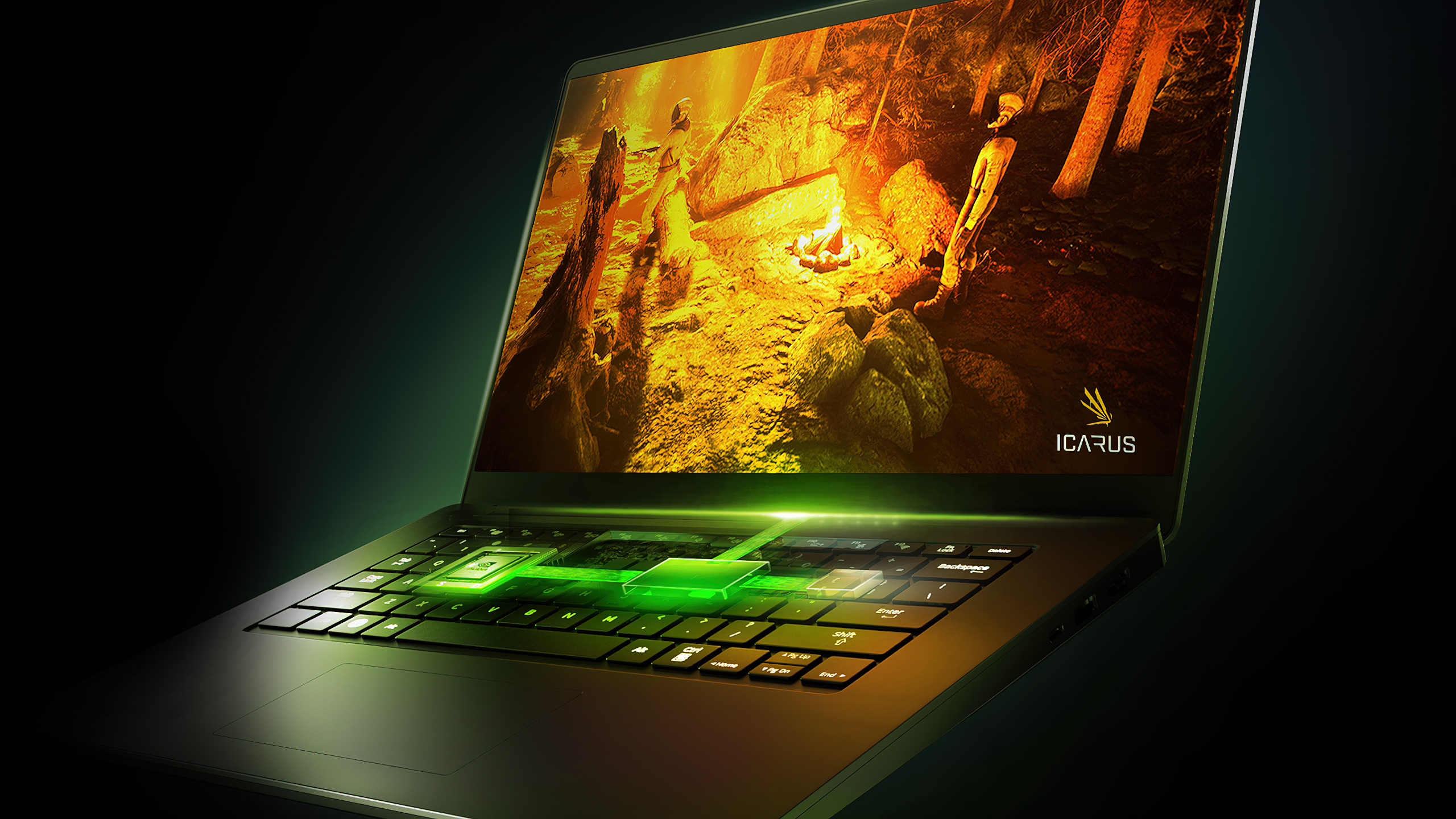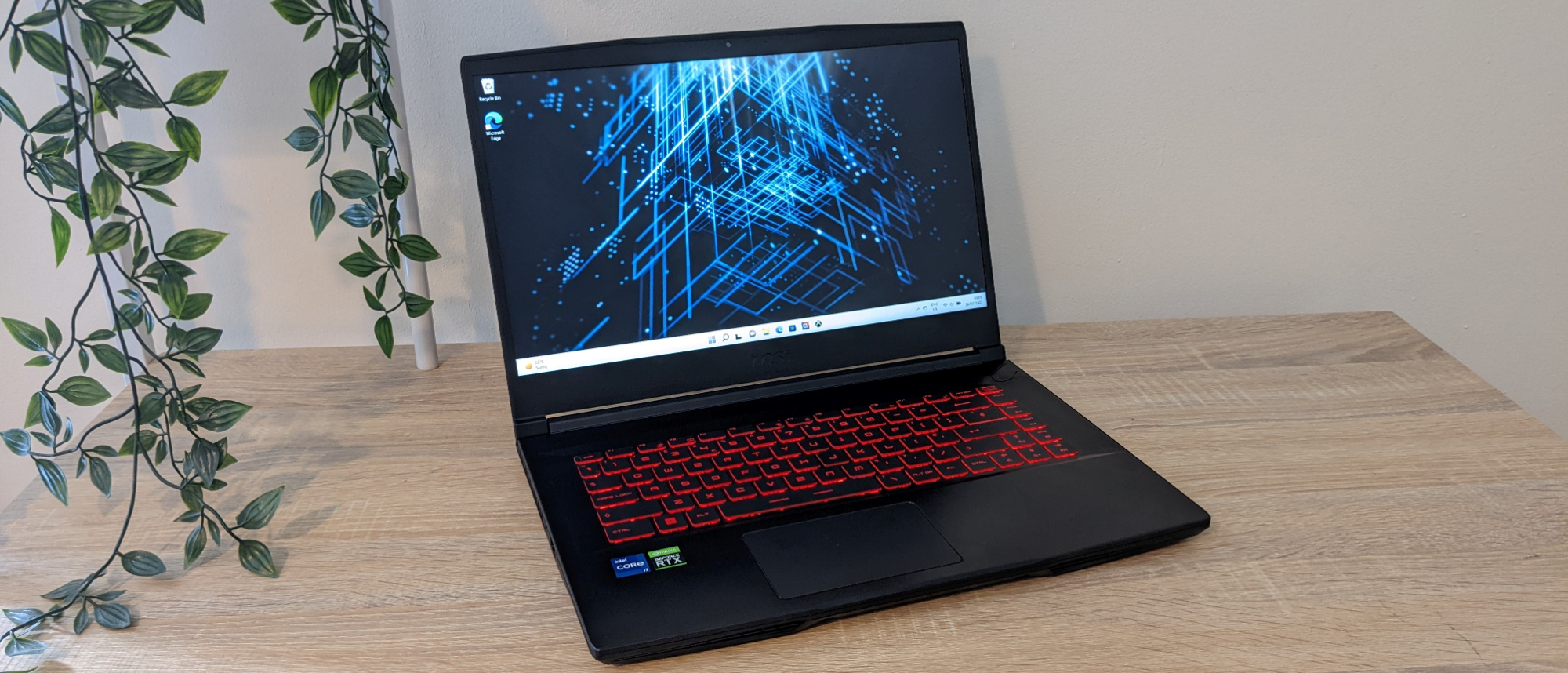Nvidia RTX 4050 could be the ‘Terminator GPU’ of this laptop generation that refuses to die when the RTX 5050 arrives
Nvidia could keep RTX 4050 laptop GPU to sit under RTX 5050

- Nvidia may keep the RTX 4050 mobile when RTX 5000 laptop GPUs launch
- It will sit at the bottom tier, below the Blackwell mobile graphics cards
- What isn’t clear is if it’ll drop in price to help with cheaper gaming laptops
Nvidia will apparently keep its RTX 4050 GPU for laptops when new RTX 5000 mobile graphics cards arrive, though the rest of the Lovelace notebook range will be canned.
Wccftech grabbed the scoop on this rumor, which comes from a leaker on Weibo who we’re not familiar with, so we’d advise doubling down on the skepticism with this info.
The RTX 5000 laptop range could arrive as soon as CES 2025 in January (alongside Blackwell desktop GPUs), according to previous buzz on the grapevine, and when Nvidia does launch these new mobile GPUs, we can expect the RTX 4060 laptop graphics card and above – running through to the RTX 4090 – to be discontinued.
Does Nvidia keeping the RTX 4050 mean there won’t be an RTX 5050 graphics card for gaming laptops? Actually, that’s not the case because the leaker claims Team Green will indeed launch an RTX 5050, but what will happen is the RTX 4050 will be kept alive to serve as the tier below that offering.
So, in theory, we’ll have an RTX 5090 running all the way down to the RTX 5050 mobile, with the RTX 4050 underneath that – but again, we should underline the speculative nature of this chatter.

Analysis: Fresh hope for cheaper budget laptops? Or not…
What we hope will happen (if the rumor is true) is that the RTX 4050 remains as a (cheaper) budget option for more affordable gaming laptops, away from the new Blackwell mobile GPUs. However, the Weibo leaker seems to hint that the price of the RTX 5050 will not be kept the same as the RTX 4050 when it was launched, and it might increase by a ‘step’ – but we should caution the wording (and translation) is confusing and unclear here.
However, we take it as a suggestion Nvidia might maintain RTX 4050 pricing as it is, and increase the (launch) asking price of the RTX 5050 (what’s charged to laptop makers, that is – and naturally that’s reflected in the final price of the notebook to the consumer). But, as we say, this is far from clear – though if Team Green wants to go the moneymaking route, obviously this would be the thing to do.
Get daily insight, inspiration and deals in your inbox
Sign up for breaking news, reviews, opinion, top tech deals, and more.
We can still hope the RTX 4050 is being maintained as a wallet-friendly option going forward, and its price could drop, with the new RTX 5050 coming in at the 4050’s old level. There's precedence for this already, too: Nvidia kept the RTX 2050 sticking around as a budget laptop alternative after the 3000 series was released.
Nvidia keeping the RTX 4050 suggests it has proved a popular mobile option for laptop gamers, although it can’t hold a candle to the RTX 4060. At least not going by Valve’s Steam hardware survey, where the RTX 4060 mobile is the second favorite mobile GPU of all, with 4.3% of market share, compared to the RTX 4050 mobile with around 1.1%.
That’s still pretty popular, though, and obviously, the RTX 4050 can have a place in Nvidia’s new Blackwell mobile GPU regime, where it neatly slots in at the bottom tier, whereas that isn’t true with the RTX 4060 (assuming Nvidia really is making an RTX 5050, of course – presumably as a laptop-only GPU, again).
We’ve just got to hope Nvidia prices these next-gen mobile GPUs reasonably and gives us more options in the way of cheap gaming laptops – though if you’re after one of these, Black Friday could see some killer offers, as ever. Notebook price cuts are always plentiful, and sometimes we see some very deep discounts, with those Black Friday gaming laptop deals having started already.
You might also like
Darren is a freelancer writing news and features for TechRadar (and occasionally T3) across a broad range of computing topics including CPUs, GPUs, various other hardware, VPNs, antivirus and more. He has written about tech for the best part of three decades, and writes books in his spare time (his debut novel - 'I Know What You Did Last Supper' - was published by Hachette UK in 2013).